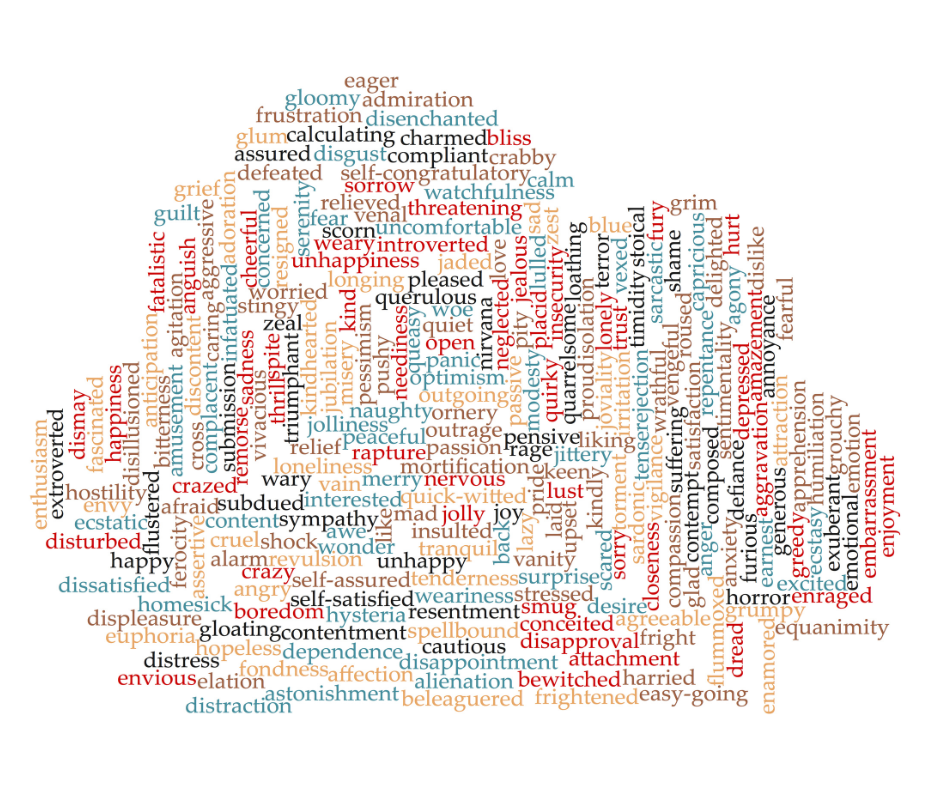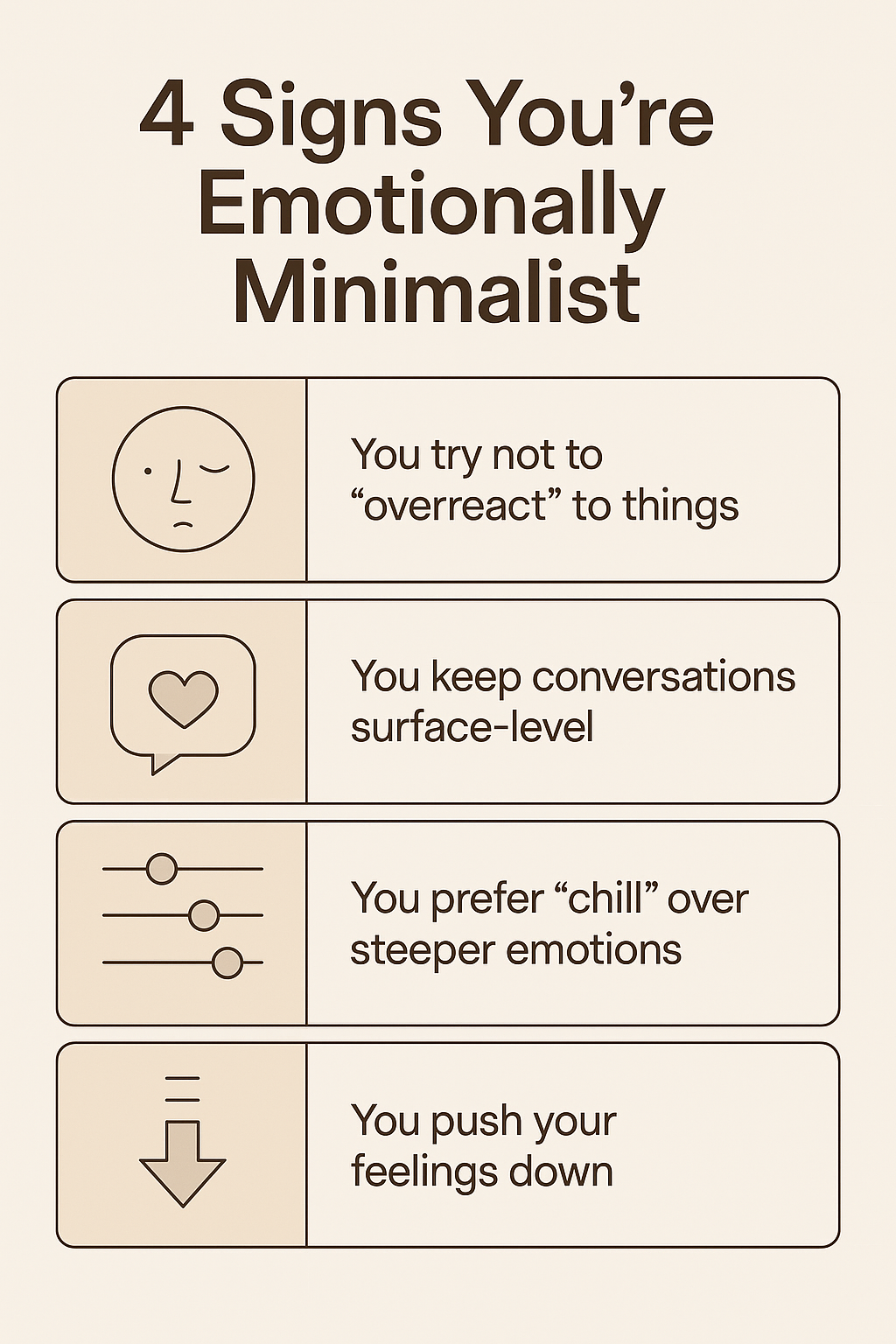Emotional Minimalism: Why We’re Afraid to Feel Too Much
The New Aesthetic of Emotional Control
We’ve decluttered our closets, simplified our skincare, and streamlined our lives.
But somewhere along the way, we started decluttering our emotions too.
Welcome to the era of emotional minimalism — the quiet belief that feeling less means living better.
It’s not about coldness; it’s about composure. The calm tone. The neutral palette. The “I’m fine” you give instead of “I’m overwhelmed.”
And while it looks balanced on the outside, inside? Many people are quietly craving connection — but don’t know how to let it in.

1. How Emotional Minimalism Sneaks In
Emotional minimalism isn’t always intentional.
It’s often a coping mechanism — a way to manage the chaos of overstimulation, heartbreak, or burnout.
You start trimming the emotional edges:
- You tell yourself not to overreact.
- You avoid deep conversations because they feel messy.
- You choose “chill” over confrontation.
Eventually, you mistake numbness for peace.
2. The “Too Much” Fear
In places like King West, where confidence and cool are the cultural currency, being “too emotional” can feel like a weakness.
You learn to keep things smooth — especially if you’re successful, social, or in control of your image.
But behind the polished exterior, you might feel disconnected from joy, love, or even sadness.
Emotional minimalism tells us that stillness is strength.
But real strength isn’t in feeling less — it’s in allowing yourself to feel fully.
3. The Psychology Behind It
At its core, emotional minimalism is about protection.
It’s what psychologists call emotional suppression — the act of holding back feelings to avoid discomfort or rejection.
Maybe you grew up in a home where emotions were seen as “dramatic.”
Maybe you work in an environment where composure equals credibility.
Or maybe vulnerability just feels like a risk you can’t afford to take.
But suppressing emotion doesn’t erase it — it stores it. And over time, that emotional clutter turns into anxiety, fatigue, or disconnection.
.png)
4. The Illusion of Control
Minimalism thrives on control — the tidy apartment, the curated aesthetic, the calm tone.
But control can easily become confinement.
When you’re constantly managing your emotional expression, you also manage your capacity for joy, love, and spontaneity.
It’s not that you don’t feel — it’s that you’ve become so good at organizing your emotions that you’ve forgotten how to experience them.
5. How It Shows Up in Relationships
Emotional minimalism can make intimacy tricky.
You might:
- Avoid vulnerability because you fear being “too much.”
- Attract partners who are emotionally distant — familiar but frustrating.
- Keep conversations surface-level to avoid conflict.
It’s not that you don’t want love — you just want it to feel safe, predictable, and perfectly contained.
But love, like emotion, is supposed to take up space.
6. The Cost of Staying “Unbothered”
“Unbothered” has become the ultimate compliment — the sign that you’ve mastered detachment.
But when you never let yourself be moved, you also never let yourself be moved by life.
True emotional wellness isn’t about never crying or never caring.
It’s about knowing that you can — and still be okay afterward.

The Therapy Perspective: Making Room for Feeling
At KMA Therapy’s King West location, we work with clients who are high-functioning, self-aware, and emotionally disciplined — but quietly disconnected.
Therapy helps you:
- Reconnect with your emotions safely
- Build emotional literacy (the ability to name and express what you feel)
- Learn self-regulation without self-suppression
- Experience vulnerability as strength, not risk
You don’t have to live in grayscale. There’s beauty in the full emotional spectrum.
From Minimal to Meaningful
You don’t need to “declutter” your feelings to live a calm life.
Peace doesn’t come from perfection — it comes from permission.
When you allow yourself to feel, even the uncomfortable emotions, you start to feel alive again.
Not curated. Not calm. Just real.
.png)
Ready to Feel More Fully?
If you’ve been holding it all together for too long, our King West therapists can help you reconnect with the emotions you’ve tucked away.
Book your 15-minute discovery call today to get matched with a therapist who can help you move from emotional control to emotional connection.
Book your free 15-minute discovery call →






